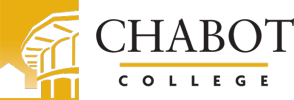
Human Services
This program map from the 2024-2025 catalog year represents one possible pathway to complete this program. Your pathway may vary depending on your transfer plans and also previous college credit, including AP Test scores, concurrent enrollment courses and high school articulated courses.
I'm ready to get started. What do I do next?
- Review this program map to get an overview of the required courses
- Meet with a counselor to develop your customized student education plan www.chabotcollege.edu/counseling
- Use DegreeWorks, an online student education planning tool, to track your progress toward graduation www.chabotcollege.edu / admissions / degreeworks
Students will gain knowledge of the theories and practices in Social Work, Behavioral Health and other Human Services, engage in experiential coursework and receive support in externship placement that will prepare them to work in Human Services. Students will have the opportunity of self-reflection and the application of theory for Human Services work.
What can I do with this major?
This program is designed to provide entry-level skills to work in human services positions and/or provide an applied foundation for further education in a variety of areas, including (but not limited to) counseling, psychology, social work, social justice work, and health care.
The human services associate degree prepares students for employment as paraprofessionals in agencies such as group homes, youth and family service schools, community outreach, family court advocates, non-profit community-based organizations, state- and county-based social services and mental health services.
Learning and Career Pathway
- Social Sciences, Humanities & Education
Icon Key
Semester 1
List A course
English 1- Critical Reading and Composition
Math Course for general education: see a counselor to choose the appropriate course. 1
General Education Course- see a counselor to choose the appropriate general education pattern and general ed course option for this term.
Semester 2
PSCN
1
Introduction to Psychology-Counseling in a Multicultural Environment
PSCN
95
Social Work and Human Services Fieldwork
PSCN
96
Social Work and Human Services Seminar
List B course
List C course
General Education Course- see a counselor to choose the appropriate general education pattern and general ed course option for this term.
Elective- see a counselor to choose a course that counts for elective units (can be any credit course).
Semester 3
PSCN
2
Introduction to Case Management for Human Services
Major Specific GE Requirement course
General Education Course- see a counselor to choose the appropriate general education pattern and general ed course option for this term.
General Education Course- see a counselor to choose the appropriate general education pattern and general ed course option for this term.
Elective- see a counselor to choose a course that counts for elective units (can be any credit course).
Semester 4
Elective- see a counselor to choose a course that counts for elective units (can be any credit course).
Elective- see a counselor to choose a course that counts for elective units (can be any credit course).
Elective- see a counselor to choose a course that counts for elective units (can be any credit course).
Elective- see a counselor to choose a course that counts for elective units (can be any credit course).
Elective- see a counselor to choose a course that counts for elective units (can be any credit course).
List A
Choose 1 course from the list below:
PSCN
12
Self-Esteem For Success
PSCN
30
Life Transitions
PSCN
11
Interpersonal Relationships
List B
Choose 1 course from the list below:
PSCN
20
The College Experience
PSCN
15
College Study Skills
PSCN
23
Creating Success in College and Life
PSCN
10
Career and Educational Planning
List C
Choose 1 course from the list below:
PSCN
3
Drugs, Recovery and Prevention in Modern Society
PSCN
4
Multiethnic/Cultural Communication
PSY
1
General Psychology
SOCI
1
Principles of Sociology
REQUIRED FOR THE MAJOR SPECIFIC G.E. REQUIREMENT
Complete a minimum of 3 units from the list below.